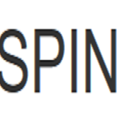There is a growing interest in cost-effective self-supervised fine-tuning (SSFT) of self-supervised learning (SSL)-based speech models to obtain task-specific representations. These task-specific representations are used for robust performance on various downstream tasks by fine-tuning on the labelled data. This work presents a cost-effective SSFT method named Self-supervised Correspondence (SCORE) fine-tuning to adapt the SSL speech representations for content-related tasks. The proposed method uses a correspondence training strategy, aiming to learn similar representations from perturbed speech and original speech. Commonly used data augmentation techniques for content-related tasks (ASR) are applied to obtain perturbed speech. SCORE fine-tuned HuBERT outperforms the vanilla HuBERT on SUPERB benchmark with only a few hours of fine-tuning (< 5 hrs) on a single GPU for automatic speech recognition, phoneme recognition, and query-by-example tasks, with relative improvements of 1.09%, 3.58%, and 12.65%, respectively. SCORE provides competitive results with the recently proposed SSFT method SPIN, using only 1/3 of the processed speech compared to SPIN.
翻译:暂无翻译




